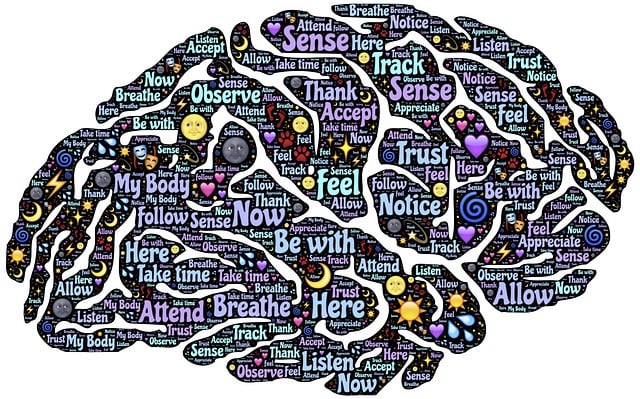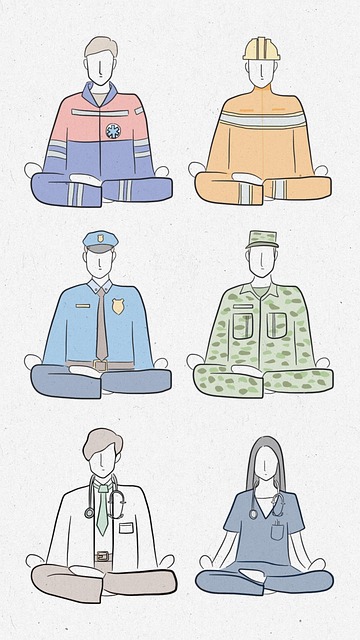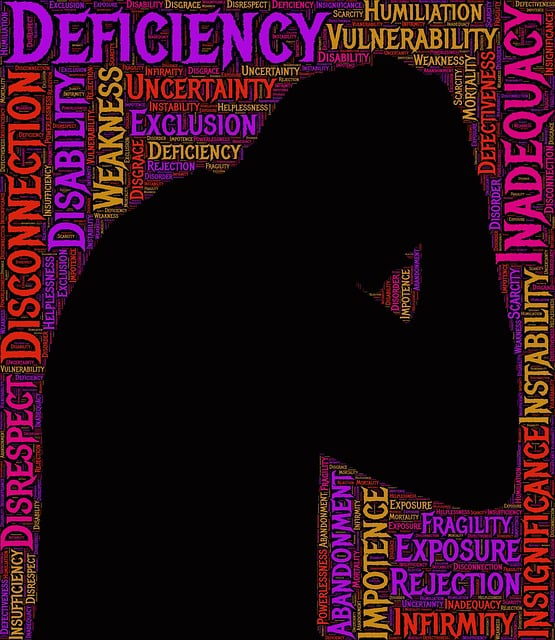Burnout among pediatric therapists is a critical issue, characterized by emotional exhaustion and reduced efficacy, impacting their ability to care for young patients effectively. Early detection through mental health assessments and proactive self-care practices like mindfulness are essential prevention strategies. Building resilience and self-esteem in therapists through targeted interventions can mitigate burnout risks. Effective support systems, including group therapy, stress management techniques, counseling, and clear guidelines, create a healthier work environment, enhancing job satisfaction and patient outcomes. By prioritizing these measures, the field of pediatric therapy can improve the well-being of both providers and the children they serve, focusing on strategies like mindfulness for self-esteem in young patients.
In the demanding landscape of healthcare, burnout among providers is a pressing issue, particularly impacting those who specialize in therapy for young children. This article explores effective strategies to prevent and mitigate provider burnout, focusing on building resilience and fostering healthy self-esteem. We delve into the significant consequences of burnout not only on practitioners’ well-being but also on the quality of care delivered to young patients. By implementing robust support systems, healthcare providers can sustain their practice and positively influence the lives of children in their care.
- Understanding Burnout Among Healthcare Providers
- The Impact of Burnout on Young Children's Health and Therapy
- Building Resilience and Self-Esteem: Prevention Strategies
- Implementing Effective Support Systems for Sustainable Practice
Understanding Burnout Among Healthcare Providers

Burnout among healthcare providers is a growing concern, impacting not only their well-being but also patient care. It often manifests as emotional exhaustion, depersonalization, and reduced professional efficacy. This phenomenon is particularly prevalent in professions like pediatrics, where therapists working with young children may face unique challenges. For instance, the demands of therapy for young children can be strenuous, requiring constant empathy, patience, and creativity to meet each child’s individual needs. Over time, these relentless pressures can deplete even the most dedicated professionals, leading to burnout if not addressed proactively.
Understanding burnout involves recognizing its symptoms beyond mere fatigue. It includes a range of emotional and psychological states, such as cynicism, detachment from work, and decreased satisfaction. A comprehensive risk assessment for mental health professionals is essential in identifying at-risk individuals early on. Building resilience through practices like mindfulness meditation can be a powerful tool in prevention. Additionally, self-esteem plays a crucial role; supporting healthcare providers’ sense of worth and competence can enhance their ability to cope with workplace stressors.
The Impact of Burnout on Young Children's Health and Therapy

Burnout among healthcare providers can have profound effects on their ability to deliver quality care, particularly when it comes to therapy for young children. When therapists experience burnout, they may struggle to connect with their young patients on a deep level, impacting the therapeutic process and ultimately affecting the child’s emotional well-being and self-esteem. Children are highly susceptible to the mood and energy of those around them, especially in a therapeutic setting. A burnt-out therapist might convey fatigue or cynicism, making it challenging for children to open up, express their feelings, and build trust.
Additionally, burnout can lead to decreased motivation and patience, which are essential qualities when working with young minds. Self-care practices, such as setting boundaries and practicing emotional intelligence, are vital to prevent burnout. Therapists who prioritize stress reduction methods and incorporate self-care into their routines can maintain a positive outlook, ensuring they are fully present and engaged during therapy sessions. This not only benefits the therapist’s overall health but also fosters a safe and supportive environment for young children to explore and heal.
Building Resilience and Self-Esteem: Prevention Strategies

Building resilience and self-esteem are essential prevention strategies for healthcare provider burnout. Encouraging professionals to prioritize their well-being through regular therapy for young children can offer valuable tools for managing stress and improving emotional regulation. This includes techniques such as mindfulness, which has been shown to enhance mood management and foster a sense of calm amidst challenging work environments.
Implementing communication strategies and social skills training further contributes to this goal. By fostering open dialogue and supportive relationships with colleagues, healthcare providers can create a safe space for sharing experiences and seeking help. Such practices not only strengthen their emotional resilience but also improve job satisfaction, thereby reducing the risk of burnout.
Implementing Effective Support Systems for Sustainable Practice

Implementing effective support systems is vital to prevent burnout among healthcare providers, especially those specializing in therapy for young children. These systems are designed to foster sustainable practice and promote mental health awareness. One key aspect is integrating emotional well-being promotion techniques into daily routines, ensuring professionals have dedicated time for self-care and stress management. This can include group therapy sessions, mindfulness practices, or access to counseling services specifically tailored to address the unique challenges faced by pediatric therapists.
Additionally, robust risk management planning for mental health professionals plays a crucial role in burnout prevention. This involves establishing clear guidelines for handling difficult cases, setting realistic caseloads, and providing regular supervision and feedback. By implementing these support mechanisms, healthcare providers can maintain high standards of care while safeguarding their own mental health and self-esteem, ultimately leading to improved patient outcomes.
Healthcare provider burnout is a growing concern, especially in the field of pediatric health and therapy. By understanding the impact of burnout on both providers and young patients, we can implement effective prevention strategies. Building resilience through self-esteem enhancement and fostering robust support systems are key to creating a sustainable practice. These approaches ensure that healthcare professionals can continue to deliver quality care, ultimately benefiting the well-being of young children in their therapy journeys.














